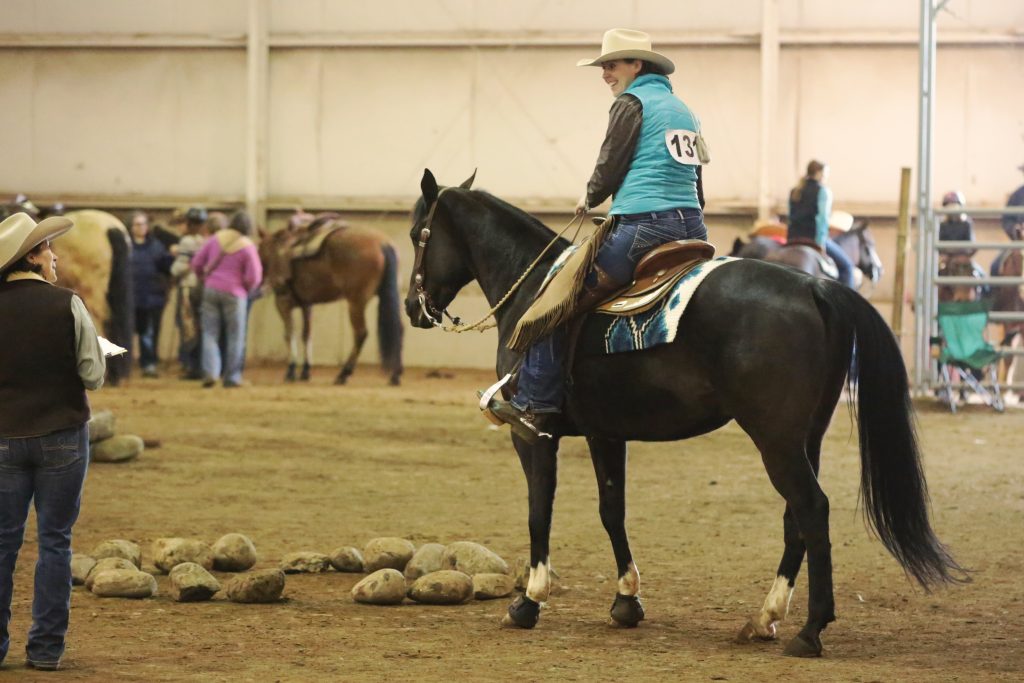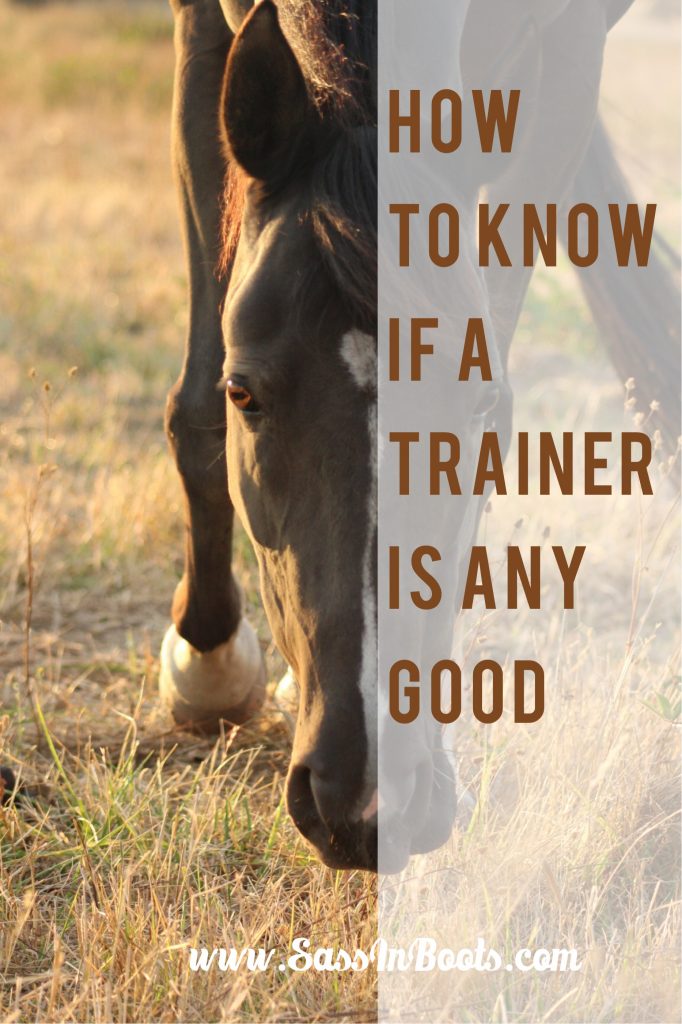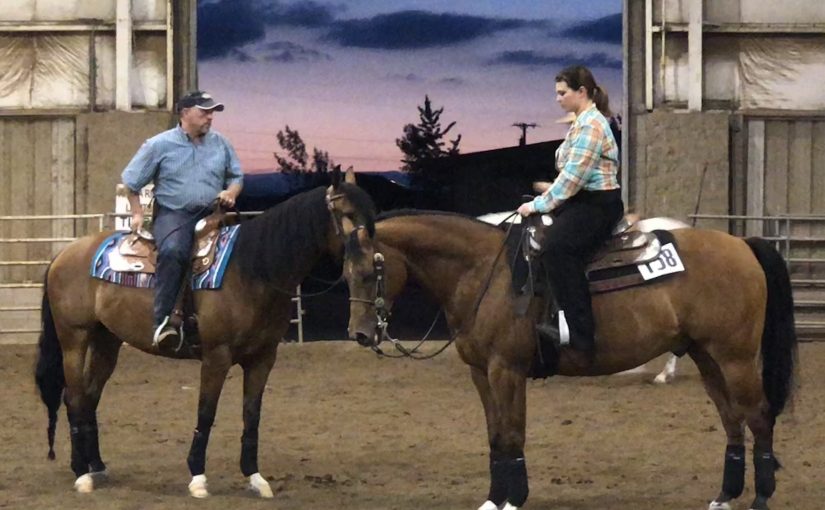The number one thing I can tell you about determining if a trainer is any good is about how they treat you, the client. Oh sure, there are other things to consider: that your horse is fed and watered and sheltered. Those are givens. And that your horse is progressing in their training. Those things you don’t need me to tell you. You already know them. And you know how to spot them.
But I’m talking about the thing that you might not be able to articulate, and in the beginning the thing you might not even realize is missing. You might have an overall sense of not really enjoying the process of training, or the lessons. But you can’t say why. Just a feeling. Maybe you think you’re too sensitive. I mean, you are there to get better and not just be fed compliments, right?

Photo courtesy of Chris T. Sloan.
I call it the “Yes and.”
It’s from improv. When someone throws an idea out, a prompt, or builds on a story, the next person builds on the scene by saying “Yes, and…” then they continue to build from there. They can’t negate what the first person said. They have to agree and build the sketch from there, improvising.
So how does this relate to if a trainer is any good?
Your trainer should say, “Yes, and.” As in, “Yes, good job/nice change/good quiet hands… and what you want to add to that is…”
Do you see what happened? You heard positive feedback and information about how to improve.
Now before you call me a millennial who must have received trophies just for participating in T-ball (I am, and no I did not) let me explain why this matters.
Some people can train horses really well, but they don’t have the skill to incorporate people into the mix. It’s not enough that someone is great with animals and just so-so with people. Or worse, bad with people. I don’t know if you’ve been to an arena lately, but equestrian sports combine people AND horses. It’s pretty important that trainers can incorporate the people into the process of learning. The people have to work with their horses. It’s not enough for just the horse to be trained.

I also cannot abide by the phrase, “Oh they’re just a little rough around the edges.”
Feedback can be hard to hear. But there’s a difference between critique and criticism. I get that they’re rooted in the same word, but the latter feels worse. And don’t let someone tell you that “They’re just being honest.”
Honesty doesn’t have to be harsh. It doesn’t have to be candy-coated either.
You want someone who has the ability to build on your skills and then fold in their advice with the “and.”
Take for example, “Your circles looked amazing and we just need to get you going faster to get your stops bigger.”
Compared to, “Your stops suck because you don’t go fast enough.”
Both are true. One feels better than the other.
Are you about to argue with me that some people need to toughen up? Not be so sensitive? Sure, we can debate that. The thing is though, equestrian sports, when it comes to amateurs, is a customer service industry with horses as the commodity. You, the customer, are paying a lot of money for your horse to be in training and for you to become a better rider. The learning part is most of the deal. The showing part is a matter of hours. The ribbon placing is a matter of seconds.

Don’t you want the learning to feel good? To make you want to come back for more? Don’t you want to hear encouragement about the things you’re doing well, the progress you’ve made? Your grandpa from Minnesota isn’t here to tell you how hard life was on the farm after the great depression and right before the war and how getting your feelings hurt doesn’t make a lick of difference to survival. Let that go. That was a different life. And shit, any life, no matter how challenged and difficult, with the ups and downs and heartbreaks that life serves up, doesn’t need to be made worse by “honest words,” delivered without kindness.
If you’ve been taking lessons for a while, your trainer is probably a little quicker with you on the critique than the compliment. That’s the nature of forming familiar relationships where words come out faster than they’re weighed. But time builds trust, and lays the foundation for hearing more “ands” than “yeses.” But for goodness sakes, if you’re new to this gig, if it’s your first horse, or your first lessons, or you’re new to the trainer, new to the discipline, don’t accept the excuse that they’re just really honest, or rough around the edges, or really talented with the horses.
I’ve written before about the good-cop/bad-cop dynamic of the trainers I work with. And a little bit I’m poking fun. Because bad-cop doesn’t only ever give critiques. And good-cop, he definitely tells me the “ands” of my riding.
Honesty doesn’t have to hurt and riding horses should be fun.
Don’t let anyone tell you any different.

